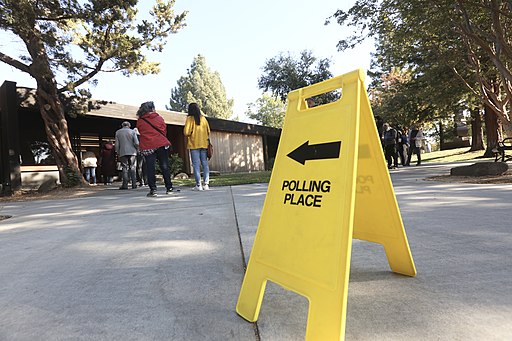
The usual way of thinking about politicians is: What do we think of them? Do we like the way they look? Do we like the way they sound? Are they on our side of this or that big divide? Do their policy proposals make sense? Do we … like them?
As the next presidential election approaches (is it just me or is the next presidential election ALWAYS approaching?) and candidates for the major party nominations warm up in the bullpen — testing out their various curveballs and sliders in preparation for the Big Game — I suggest trying to look at them from the other direction. What do those politicians think about us, and what do their attitudes toward us tell us about them?
I should probably start with the bottom line: For most politicians, voters are a means to an end. Our primary purpose in life, so far as they’re concerned, is to provide them with lifetime paychecks and unlimited power, whipped cream and cherry on top, thank you very much.
That’s just the nature of our system: Its centralization of authority attracts people who desperately want that authority and will do whatever’s necessary to get it. Narcissists. Sociopaths. Busybodies. Others need not apply; the competition is rigged to reward the obsessively power-hungry.
We can’t do much about that — the whole electoral field looks pretty much the same on that particular metric — but there are other characteristics we can check for.
When Donald Trump tells you he has a plan to end a war but won’t share that plan with you, he’s telling you he thinks you’re extraordinarily gullible, and also that you’re too young to remember the 1968 presidential election, when Richard Nixon pulled the same “secret plan” con vis a vis Vietnam.
When Joe Biden tells you that he’s the candidate of individual freedom, he’s telling you he thinks you suffer from some sort of severe memory impediment. Since you can’t remember his 30-odd years in the Senate, his eight years as vice-president, or his first term as president, he probably assumes he’ll need to remind you to vote two or three times on Election Day alone.
When Ron DeSantis centers his campaign pitch around “the woke mind virus,” he’s telling you that he’s a bizarro whackadoodle crank, or that he thinks you’re a bizarro whackadoodle crank and wants to appeal to your bizarro whackadoodle crankiness, or, likely, both.
When Robert F. Kennedy, Jr. tells you that opposing censorship is one of his flagship issues, he’s just riffing on Biden’s memory loss assumption: He assumes you won’t remember his long record of calling for the imprisonment of those who “deny” the correctness of his opinions on climate change, disagree with him on the efficacy and side effects of vaccines, etc.
And so on, and so forth. If you’re thinking that most politicians don’t hold you in very high esteem, you’re right. They mostly regard you as some combination of stupid, gullible, and crazy. If you vote for them, they’re probably right.
Thomas L. Knapp (Twitter:@thomaslknapp) is director and senior news analyst at the William Lloyd Garrison Center for Libertarian Advocacy Journalism (thegarrisoncenter.org). He lives and works in north central Florida.
PUBLICATION/CITATION HISTORY
